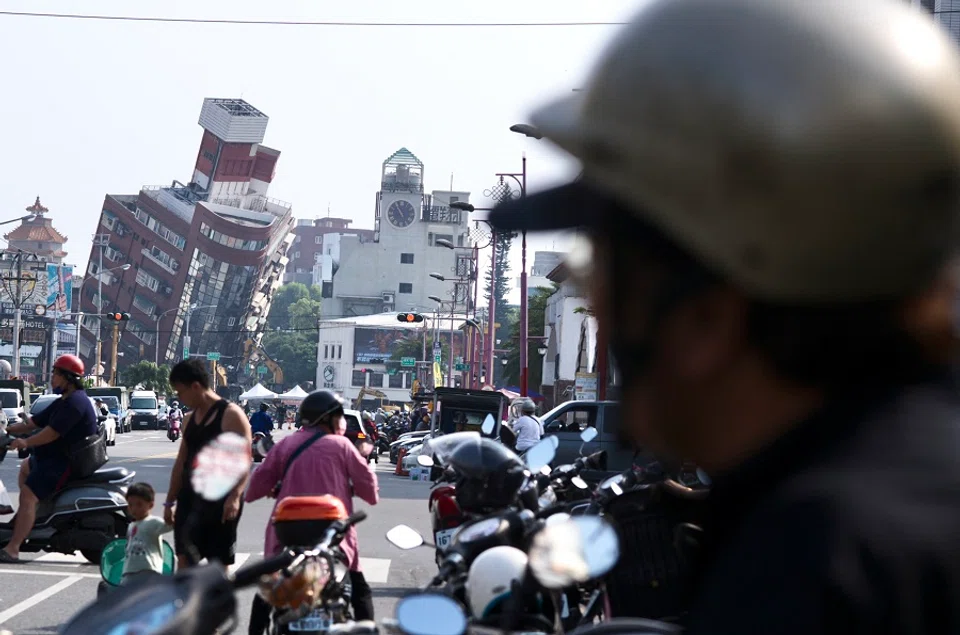Taiwan and Japan’s ‘earthquake diplomacy’
Honda Mami, a Japanese student in Taiwan, shares her thoughts on Taiwan and Japan’s long history of coming to each other’s aid during earthquakes.

Just as I was about to go to class at 8am on 3 April, everything started shaking — an earthquake had struck in Taiwan. Everywhere on campus, sounds of wall tiles falling and goods tumbling off shop shelves could be heard. Passersby looked panicked and frightened, and I was extremely nervous and scared.
After things calmed down, I turned on my phone and chanced upon a Japanese report on the earthquake. I was amazed at how quickly they reported the news. I then looked at the comments section and realised that many Japanese residents were concerned about the incident, and were discussing how they could help.
This scene reminded me of Taiwan’s 921 earthquake in 1999 and Japan’s 311 earthquake in 2011. Whenever an earthquake occurs, Taiwan and Japan will provide monetary aid and material support to each other, forming a unique “earthquake diplomacy” between both sides.
... Taiwan and Japan have an “earthquake aid relationship”.
Helping a neighbour in need
As both Taiwan and Japan are situated on plate tectonic boundaries, they are prone to earthquakes of varying magnitudes. Whenever a severe earthquake hits one party, the other party will actively provide assistance. For example, during Taiwan’s 921 earthquake, Japan dispatched a rescue team to affected areas; when Japan was hit by an earthquake on 1 January this year, Taiwan also donated about 2.5 billion yen (US$15.9 million) to the affected areas.

Based on the aforementioned cases, it is clear that Taiwan and Japan have an “earthquake aid relationship”. Be it rescue teams and messages of condolences from officials or donations and on-site relief from ordinary people, a close cooperative relationship has been established between both sides.
These collaborations can serve as a diplomatic tool, particularly for Taiwan in its dealings with Japan. For example, by highlighting the extent of aid and relief supplies provided, one can bolster the “Taiwan-Japan friendship” narrative and garner public support for diplomatic policies.
Alternatively, aid provision can be strategically utilised as a bargaining chip in diplomatic negotiations to pressure the other party, using the “favour” of earthquake relief to advance one’s proposals.
I believe that such a diplomatic model is less common between Singapore and the surrounding ASEAN countries where earthquakes are rare. However, this is relatively common between Taiwan and Japan.

Some readers may ask, “Would all government officials and the general public support such a diplomatic model?” The answer is “no”.
For example, while watching relevant videos on the internet after the earthquake, I saw some relatively negative comments from Japan that read: “Sigh, we’re going to be ‘taxed’ to give monetary aid to Taiwan again.”
... there remains a group of people who think that earthquakes in other regions have nothing to do with them and thus no assistance is required.
Not everyone sees benefit of earthquake diplomacy
Also, during Japan’s earthquake, some officials either questioned or expressed indifference towards offered aid. Although such people are in the minority, my observations indicate that while most officials and the general public advocate for mutual assistance during earthquakes, there remains a group of people who think that earthquakes in other regions have nothing to do with them and thus no assistance is required.
Or they might regard these acts of aid as mere efforts to boost the goodwill of countries and governments, or as a way to extend special diplomatic favors to the other party. Hence, they see those offering relief aid as hypocrites. Having read the arguments for and against earthquake diplomacy, which side are you on?
If our assistance helped those who really needed help, whether the act was “altruistic” or “hypocritical” is secondary...

Observably, this unique model of earthquake diplomacy has existed between Taiwan and Japan for a long time, and will be maintained as long as there are earthquakes in the future.
While there are indeed voices in both Taiwan and Japan questioning this form of assistance and diplomacy, I believe that regardless of whether these acts are motivated by a genuine desire to provide disaster relief or to barter for diplomatic favours, the most important thing is whether the aid effectively helped the disaster victims when they needed it most?
If our assistance helped those who really needed help, whether the act was “altruistic” or “hypocritical” is secondary — human lives are what truly matters.





